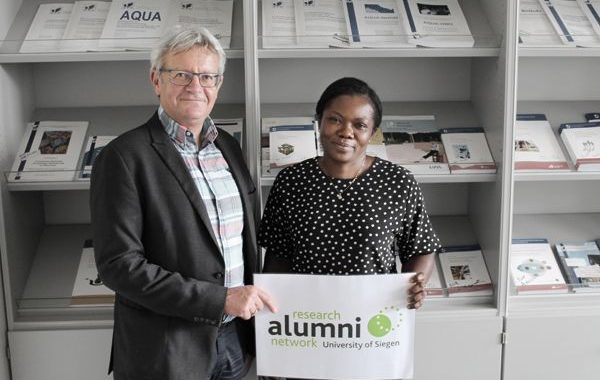Dr. Agyire-Tettey is a lecturer at the Department of Social Work, University of Ghana. She holds a Bachelor of Arts Degree and a Masters of Philosophy in Social Work from the University of Ghana (Legon), a Masters of Arts Degree in Conflict, Peace and Security from the Kofi Annan International Peacekeeping Training Centre (KAIPTC) and a PhD from the University of Siegen. Her research specialities include violence and conflict management, the protection of human rights, and social inclusion of people with disabilities. She also has experience and interest in gender issues and the general discipline of humanities. She is a strong advocate for vulnerable people in the society and she is involved in a variety of community awareness services that provide her the opportunity to help others. She finds space for fostering community awareness campaigns and environmental education in Ghana. She has been part of the Centre for Environmental Research Policy Analysis (CERPA) as a senior research advisor.
Dr. Agyire-Tettey came to Siegen, thanks to the International Education Doctorate (INEDD) which advertised for doctoral students to come to Siegen from abroad, and provided them with help adjusting to their new country. Since completing her PhD, she continues to work with her PhD supervisor, Prof. Dr. Schädler, who manages the Center of Planning and Evaluation of Social Services (ZPE) at the University of Siegen. Dr. Agyire-Tettey and Prof. Dr. Schädler work together on a joint project which looks at the role of social work to promote inclusivity for people with disabilities in the Suhum district in Ghana. Within Ghana there is a divide between urban areas, where access to social care is available, and rural areas, where it is not. In rural areas, social support is provided by that person’s family. They have also been investigating into how to overcome barriers to social inclusion, for example, many schools are not designed to meet the needs of wheelchair users, making it difficult for them to access education.
Although coming to Germany has been very beneficial for Dr. Agyire-Tettey’s career development. It can be challenging to travel through Germany without knowledge of the German language. Thankfully the willingness of others to help made life easier, for example, Dr. Agyire-Tettey arrived at her apartment late in the evening, and was worried she might not be able to enter her room, but the apartment manager stayed and waited for her so that he could hand over her keys and show her where she would be staying. The next day one of her neighbours showed her how to reach Prof. Dr. Schädler’s office, little acts of kindness such as this are very important for helping newcomers to Siegen quickly feel at home. However, there were unpleasant experiences as well. Dr. Agyire-Tettey’s PhD topic meant that she had to spend long amounts of time back in Ghana doing field work. These long periods of time away aroused suspicion at the foreigners registration office, she had to explain why she had to leave Germany so often. There was also one time, during the Ebola crisis, where she came back from Ghana while showing some signs of flu, and was therefore quarantined in a hospital for three days. Despite these incidents, Dr. Agyire-Tettey takes a philosophical approach to her experiences in Siegen, everywhere you go there are good and bad experiences, and despite the bad ones, she still values her time in Siegen and her cooperation with Prof. Dr. Schädler.
A highlight of Dr. Agyire-Tettey’s time in Siegen was her PhD defence, which her family flew to Siegen to see. The process also highlighted some of the particular aspects of Siegen’s approach to academia. It is necessary for a thesis to be published before someone is able to receive their PhD, in Siegen they were able to almost immediately have it digitally published. This is an advantage of the sise and approach of the University of Siegen. They take an approach which is expressed in German as “Kurze Wege,” whereby they take the content matter of research seriously, but also show flexibility around procedural matters to keep bureaucracy to a minimum.
When asked about their future plans, it is clear that Dr. Agyire-Tettey and Prof. Dr. Schädler have been considering many different options. They could develop their current project further and then to adapt it and use it in another district of Ghana. However, if the funding was available for them to conduct their research on a larger scale, then they would like to develop a manual for inclusive community in Ghana. There is another project in which they are considering further cooperation. The project will look at the perspectives of failed asylum seekers in NRW. This is due to the fact that, some of the asylum seekers are from Ghana, they are considering interviewing asylum seekers who have stayed in NRW, and those who have returned to Ghana. The purpose of these interviews will be to gauge the effectiveness of programs designed to incentivise failed asylum seekers to return to their home countries.
Throughout their cooperation, the Universities of Siegen and Ghana have built up trust and a close collaborative style of working. While many institutions sign memorandums of understanding with regards to international cooperation without actually producing much of substance, the less formal style of cooperation between both institutions has produced very effective results. Both sides benefit from shared expertise, as well as the local perspective which only international cooperation can provide.
